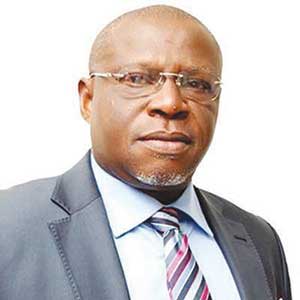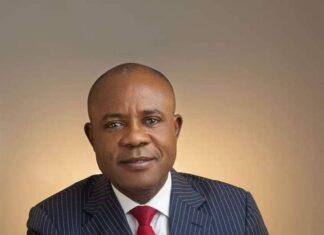Public Relations Consultants Association of Nigeria (PRCAN) President, John Ehiguese, who is also Mediacraft Associates Managing Director, acknowledges that Nigeria’s integrated marketing communication (IMC) industry lacks global recognition in terms of awards and ranking.
But, in this interview with Senior Correspondent, GODDIE OFOSE, he discloses plans to raise the standard for global attention.
New idea on the table
Essentially, I will be continuing from where my predecessors left off, and building on their successes. But in terms of what I will be bringing in specifically, I should say more vigour in running the affairs of the association, and a more global outlook in terms of integrating Nigerian PR (public relations) into the global PR community.
I will work hard to see to it that we are recognised and acknowledged as active players in this business globally, in terms of standards and quality of practice as well as in tangible contributions to the growth and advancement of the PR profession worldwide.
Misconception about PR
I agree, there is a great deal of misunderstanding about what PR really is, even among some people who you would otherwise expect to be better informed. The solution to this is of course education.
As PRCAN engages more in activities and programmes that promote the profession, people will definitely become better aware of what it is exactly that we do. I do get the feeling though that the situation is not quite as bad as it appears.
People generally seem able to spot and identify good PR when they see it in results or output, they just can’t put a finger on how it is done. This is where public education comes in.
Another thing we must do is project our successful PR practitioners as serious-minded, respectable and successful professionals in their own right.
Lack of global recognition for Nigeria’s PR
The issue of global ratings and rankings is an interesting one. We tend to be ignored in global rankings because the world does not have data on PR practice in Nigeria. And you cannot generate data if you do not conduct research.
Also, we do not have a culture of documenting our campaigns in form of case studies which we can present to global forums for assessment and reviews. Finally, our level of international exposure is still abysmally low.
How many of our practitioners attend international PR conferences, for instance?
These are some of the issues I will address during my tenure. I plan to introduce an annual PR industry research which report will be published for general consumption.
Luckily, my predecessor, Chido Nwakanma, started something in that direction, albeit on a small scale. I will review it and see how it can be improved upon and implemented in such a way that it becomes a permanent feature on the annual PR calendar in Nigeria.
I will also encourage our professionals to become more involved and visible at international PR conferences and forums. Thankfully, the response in this area has improved over the past one year or so, but we hope to do even much more.
Achievements of PRCAN
Historically, we have succeeded in no small measure in sensitising Nigerian PR practitioners to become more involved in efforts to sanitise and improve the standards of practice.
In the past two years for instance, we have admitted about 15 PR consultancies into membership of PRCAN. This is significant when you consider that the current total membership is 50. We have also begun a campaign to encourage serious clients to engage the services of only PRCAN member firms.
As we create and provide more tangible value for our members, we believe that our membership will grow, and then we’ll be able to achieve even much more.
Between PRCAN and NIPR
PRCAN was created specifically to serve the interests of the consultancy arm of the PR profession in Nigeria. It has a legal backing of the NIPR Professional Consultancy Practice (Amended) Byelaw No. 3 of 1993. There is no conflict whatsoever in roles.
The NIPR (Nigerian Institute of Public Relations) is statutorily empowered to regulate the practice of PR generally in Nigeria. Within this broad framework there is the recognition that certain sub-groups can, and indeed should, exist to address certain specific sectorial interests.
PRCAN membership is made up of PR consultancy firms, not individuals. One of the conditions for membership of PRCAN is that the chief executive of the firm must be at least an Associate member of the NIPR.
In any case, both the NIPR and PRCAN have ultimately one common goal: to grow the standard of PR practice in Nigeria. Our roles are, therefore, complementary; not competitive or adversarial.
Lack of mergers and acquisitions in PR business
There really isn’t much you can do about the proliferation of PR agencies. People will continue to set up new practices, either out of the need for self-expression, or in pursuit of some innate entrepreneurial drive.
Besides, the barriers to entry are very low. I mean, it’s so bad you don’t even need a physical office space to run a thriving PR agency. However, whether many of these new agencies will eventually thrive, or even survive at all, is another matter entirely.
I take your point about the desirability of mergers and acquisitions (M&A) in the industry, essentially in order to build scale, to gain more clout, and to service big clients effectively. We haven’t seen much of that happening yet in Nigeria, but it will come with time.
The M&A fever appears to have caught on globally, and I believe that it’s just a matter of time before we begin to see it in Nigeria.
PR in marketing mix
In comparative terms, I believe that PR is the fastest growing member of the IMC (integrated marketing communication) mix, globally. The reason for this is self-evident.
Apart from the fact that PR is relatively more cost-effective than the other elements in terms of ROI (returns on investment), the changing media landscape tends to favour an increase in PR patronage.
Today’s consumer is exposed to a wide array of media choices, and as access to consumers through these media forms themselves become more permission-based, it puts a lot more power in the hands of the consumer.
As a result, ‘earned’ media has become ‘king’ in a manner of speaking. Your ability to break through to the consumer is determined more by the relevance and interest of your message to him, than by how much you spend, or how dexterous you are in developing your media mix.
In other words, creativity in communication is no longer the exclusive preserve of so-called ‘creative’ agencies. It is as important now in PR as it is in any other element of IMC mix.
PR acceptability in Nigerian market
The demand for PR is growing in Nigeria; there is no doubt about that. This year alone, we have attended more pitches than any other year since we opened shop.
It is instructive that some of these pitches were called by organisations that have been around for quite a while, but never before worked with a PR firm.
Billings and business volume
As I said earlier, we really have no choice but to invest in industry research, if we must make progress. I will do everything I can to ensure that the annual Nigeria PR research project becomes a reality during my tenure.
It will enable us gather useful data for planning, and for projecting Nigerian PR practice globally.














